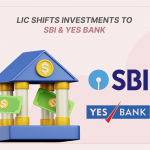In a significant development in the Indian banking sector, the State Bank of India (SBI) has successfully completed the sale of its 13.18% stake in Yes Bank to Japan’s Sumitomo Mitsui Banking Corporation (SMBC) for approximately ₹8,889 crore. This strategic move marks a pivotal moment in SBI’s investment portfolio and underscores the growing interest of foreign financial institutions in India’s banking landscape.
Deal Overview
SBI’s divestment involved the transfer of 413.44 crore equity shares of Yes Bank at a price of ₹21.50 per share. The transaction, approved by both the Reserve Bank of India (RBI) and the Competition Commission of India (CCI), positions SMBC as a significant investor in Yes Bank. This deal is part of a larger ₹13,483 crore transaction, with SMBC acquiring a combined 20% stake from SBI and other private banks, including HDFC Bank, ICICI Bank, Axis Bank, and Kotak Mahindra Bank.
Strategic Implications for SBI
This stake sale is a strategic move by SBI to streamline its investment portfolio and realize substantial gains. Having initially acquired a 49% stake in Yes Bank during the 2020 reconstruction scheme at a cost of ₹2,450 crore, SBI’s sale of 13.18% for ₹8,889 crore reflects a significant return on investment. Moreover, the deal is entirely tax-free, providing SBI with a substantial financial boon.
SMBC’s Entry into Indian Banking
For SMBC, this acquisition marks a significant entry into the Indian banking sector. With total assets of around USD 2.0 trillion, SMBC is among the leading foreign banks in India. This investment enhances SMBC’s footprint in the Indian market and aligns with its strategy to expand its global banking operations.
Market Reaction
The announcement of the stake sale had a positive impact on the stock market. SBI’s share price rose by approximately 2% following the completion of the deal, reflecting investor confidence in the bank’s strategic decisions. Conversely, Yes Bank’s share price experienced a slight decline, indicating market adjustments post-transaction.
Tax-Free Gains: A Windfall for Indian Banks
The ₹13,483 crore stake sale is entirely exempt from capital gains tax, providing a significant financial advantage to the Indian banks involved. This tax-free windfall is expected to positively impact the banks’ financial statements for the September quarter, enhancing their profitability and investor appeal.
Future Outlook
Looking ahead, the completion of this stake sale sets the stage for potential changes in Yes Bank’s leadership. SMBC’s significant shareholding may influence the appointment of a new Managing Director and Chief Executive Officer, as the bank continues to navigate its recovery and growth trajectory.
Q1: What was the total value of SBI’s stake sale in Yes Bank?
A1: SBI sold its 13.18% stake in Yes Bank for approximately ₹8,889 crore.
Q2: Who is Sumitomo Mitsui Banking Corporation (SMBC)?
A2: SMBC is a Japanese multinational financial services company and a member of the Sumitomo Mitsui Financial Group. It is among the leading foreign banks operating in India.
Q3: How does this deal benefit SBI?
A3: The deal allows SBI to realize substantial gains from its investment in Yes Bank, with the transaction being entirely tax-free, enhancing its financial position.
Q4: Will SMBC have control over Yes Bank?
A4: While SMBC will be the largest shareholder, it will not have control over Yes Bank. However, it may influence key decisions, including the appointment of the new MD & CEO.
Q5: What impact did the deal have on the stock market?
A5: SBI’s share price rose by approximately 2% following the announcement, while Yes Bank’s share price experienced a slight decline.
Conclusion
The completion of SBI’s ₹8,889 crore stake sale in Yes Bank to SMBC is a landmark event in the Indian banking sector. It reflects strategic investment decisions by SBI, the growing interest of foreign banks in India, and the dynamic nature of the country’s financial markets. As the banking landscape evolves, such developments will continue to shape the future of India’s financial sector.













